Health & Medicine
-
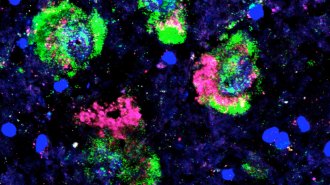 Neuroscience
NeuroscienceA very specific kind of brain cell dies off in people with Parkinson’s
Of out 10 kinds of dopamine-making nerve cells, only one type is extra vulnerable in Parkinson’s disease.
-
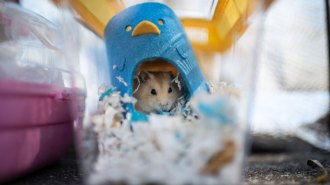 Animals
AnimalsSome hamsters are extremely susceptible to COVID-19
Golden Syrian hamsters used in research and popular as pets can become infected with SARS-CoV-2 with very low doses of the virus, a new study suggests.
-
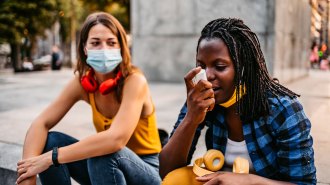 Health & Medicine
Health & MedicineThe body’s response to allergic asthma also helps protect against COVID-19
A protein called IL-13 mounts defenses that include virus-trapping mucus and armor that shields airway cells from infection.
-
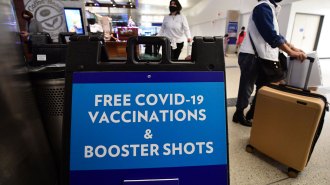 Health & Medicine
Health & MedicineHow I decided on a second COVID-19 booster shot
Boosters help for a short time, and mixing vaccines doesn’t seem to push the immune system toward making unhelpful antibodies, studies show.
-
 Health & Medicine
Health & MedicineJoggers naturally pace themselves to conserve energy even on short runs
Data from fitness trackers and treadmill tests challenge ideas about what drives speed.
By Chris Gorski -
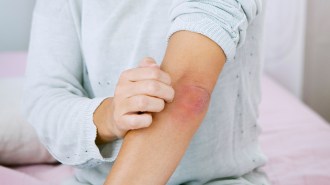 Health & Medicine
Health & Medicine50 years ago, scientists were seeking the cause of psoriasis
In the 1970s, scientists found a link between a chemical messenger and psoriasis, a complex inflammatory skin disorder.
-
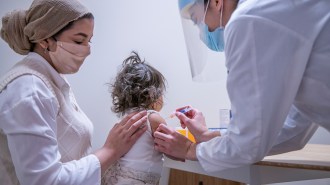 Health & Medicine
Health & MedicineAntibiotics diminish babies’ immune response to key vaccines
With each round of antibiotics during a child’s first two years, antibody levels to four vaccines dropped further from what’s considered protective.
-
 Health & Medicine
Health & MedicineWhat experts told me to do after my positive COVID-19 at-home test
Rapid at-home tests mean many COVID-19 cases go unreported, but they’re a great tool for deciding when to leave isolation. I found that out firsthand.
By Anna Gibbs -
 Health & Medicine
Health & MedicineWhy taking medications during pregnancy is so confusing
It's hard to know what new drugs are safe when medical research excludes pregnant people.
-
 Particle Physics
Particle PhysicsA new nuclear imaging prototype detects tumors’ faint glow
Nuclear imaging that relies on Cerenkov light could supplement standard-of-care technology for identifying location of tumors.
By Anna Gibbs -
 Health & Medicine
Health & MedicineWhat we learned about COVID-19 safety from a NYC anime convention
November’s Anime NYC convention was not a COVID-19 superspreader event, which means there are lessons to be learned.
-
 Health & Medicine
Health & MedicineRacial bias can seep into U.S. patients’ medical notes
Black patients were more often described negatively in medical notes than white patients, which may impact care.